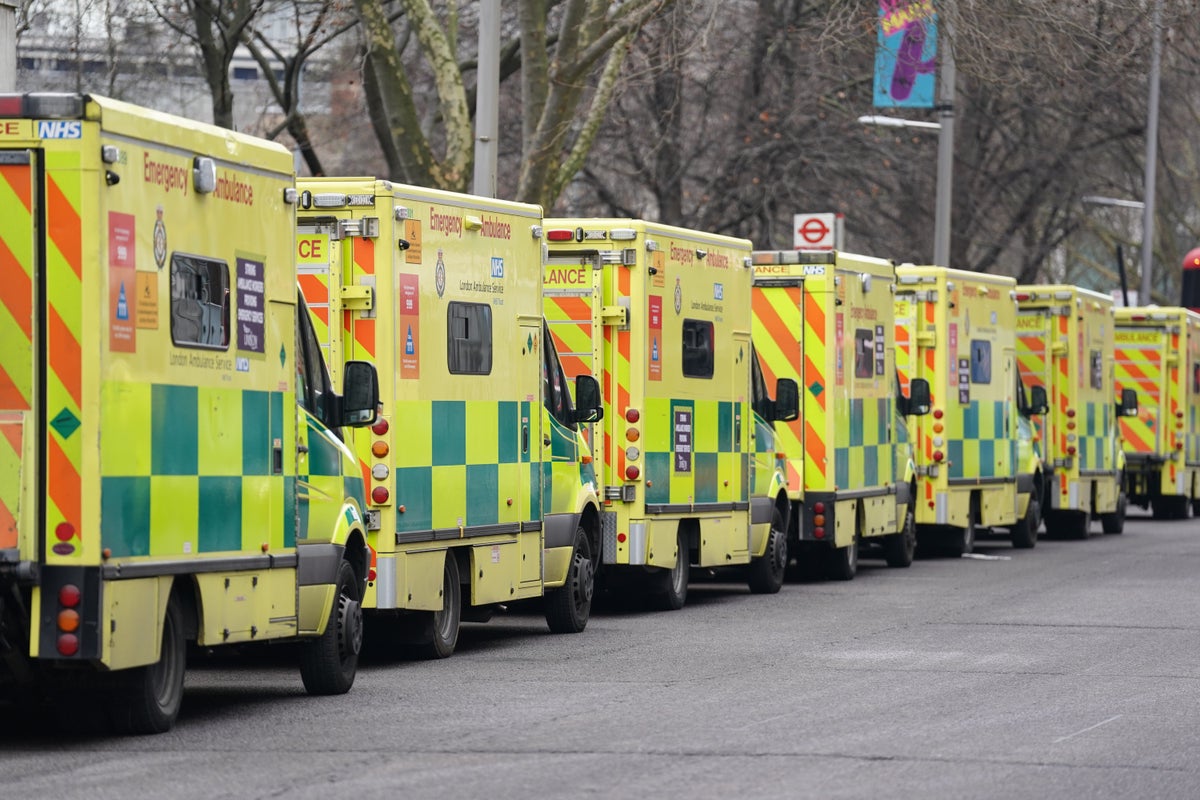
mbulance strikes set to take place next week in London have been called off after the Government agreed to talks on pay, a union has confirmed.
Unison said that industrial action scheduled for next week would not go ahead after the union received confirmation that “additional investment” in pay would be available for both this year and next year.
Sara Gorton, Unison head of health, said: “The government has finally promised extra investment in pay for both this and next year.
“The sad thing is this could all have been handled so differently. Proper pay talks should have started months ago, long before the first strike was called. That would have avoided days of disruption for the NHS and its patients.
“Whether the talks signal the beginning of the end of the current dispute will emerge in the coming days. If a deal can be reached, strikes can end and everyone can work together again to ensure the NHS gets back on track.
“However, when we get in the room, we’ll quickly learn whether the talks can be meaningful. If not, UNISON will be forced to resume strike action. Nobody wants that.”
The Royal College of Nursing (RCN), GMB and Chartered Society of Physiotherapy have already paused strike action after agreeing to talks on pay and conditions with the Government.
Members of the GMB were set to walk out on Monday and Wednesday.
Planned action by GMB across England would have involved 13,000 workers, while thousands more were due to join picket lines as part of Unison action.
Rachel Harrison, GMB secretary, said the breakthrough had only come after the union threatened to tighten derogations on which emergency calls would be covered by ambulance staff on strike days.
“Less than 24 hours later we received a letter from the Secretary of State for Health, Steve Barclay, inviting us and other unions to pay talks.
“This is a huge shift from the government, who for months have refused to consider negotiations on pay.
“Now, they are saying they are willing to sit down and talk.”
The Chartered Society of Physiotherapy (CSP) has suspended planned strike action at 56 trusts scheduled for March 22.
Elaine Sparkes, assistant director of the CSP, said: “We’ve been calling for meaningful talks for months and always said we would suspend action if they took place.
“We therefore welcome these discussions and hope they can conclude with a fair deal that helps our members manage the cost of living crisis and enables the NHS to recruit and retain the staff it needs.”
Health Secretary Steve Barclay had previously infuriated unions by exclusively opening talks with the RCN, but the Government on Tuesday invited health unions to formal pay talks through the NHS staff council, which traditionally sets NHS pay.
Pay for RCN members is covered by the NHS-wide Agenda for Change agreement, which also includes other NHS workers.
Sir Julian Hartley, chief executive at NHS Providers, welcomed the announcement that planned ambulance strikes have been suspended.
He said: “Trust leaders will be hugely relieved that the Government are coming round the table with more unions to talk about pay, and that much of next week’s strike action has now been called off.
“But while progress is now being made in talks with some NHS unions, the prospect of a three-day walkout by junior doctors continues to loom large.
“We hope today’s breakthrough will pave the way for similar negotiations with all other unions planning strikes.
“We are urging the Government and unions to pull out all the stops and begin talks immediately so that further disruption to patient care can be avoided.”
A Department of Health and Social Care spokesperson said: “We’re pleased that Agenda for Change unions representing the majority of ambulance workers, nurses, physiotherapists, porters, cleaners and other non-medical staff have agreed to pause strikes and enter a process of intensive talks.
“We want to start these talks as soon as possible and are ready to meet over the weekend.
“We want to find a fair and reasonable settlement that recognises the vital role of NHS workers, the wider economic pressures facing the UK and the Prime Minister’s priority to halve inflation.
“It is disappointing Unite is going ahead with strikes next week. We urge them to call off strikes and join other unions at the negotiating table. Further strikes will cause more frustration and delays for patients, despite contingency plans in place.”











